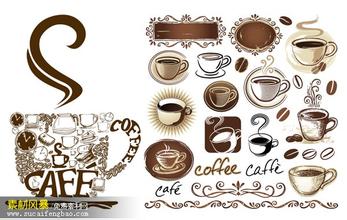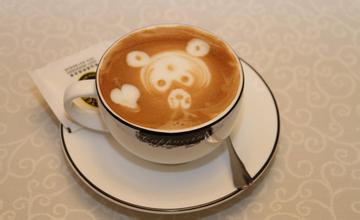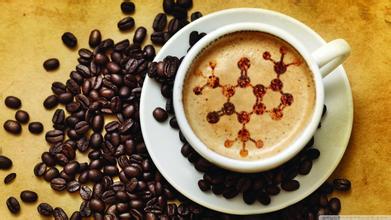Aromatic taste slightly sour Salvadoran coffee estate producing area Flavor Taste characteristics Fine coffee
Old name "San Salvador","Bahia". An important natural deep-water port on Brazil's Atlantic coast, capital of Bahia. Located on the east coast of the Bay of Todos (Santos). With a population of 3,459,377 (as of August 1, 2010), it is the eighth largest city in Brazil. It is one of the oldest cities in Brazil, founded in 1549, and the first churches were built by Jesuit priests in 1549. Until 1763, Salvador was the capital of Brazil. It is a comprehensive industrial and commercial city. The nearby Candelas oil field produces oil. Industries include petroleum refining and petrochemicals, automobiles, food, tobacco, textiles, shipbuilding and so on. Land and sea transportation is developed, and there are airports in the suburbs. The port is open and deep, capable of berthing ocean-going ships and supertankers, exporting textiles, tobacco, coffee, oil, etc. The city was built on a peninsula stretching into the Atlantic Ocean, divided into high and low cities, linked by lifts and cable cars. There are many colonial buildings and churches, as well as universities and museums. The seaside scenery is beautiful and is a tourist attraction.
The ancient city of El Salvador was one of the main centers of the African slave trade during colonial rule. In 1558, the first African slaves arrived and began to cultivate sugar cane. Until the mid-18th century, this port of El Salvador became the main trading center of Portugal; it was located on the route of triangular trade between Africa, Brazil and Europe. Many European immigrants settled in the city.
In the seventeenth century, when Portugal was still under Spanish rule, El Salvador was frequently attacked by the Dutch. Many forts were built to defend the city. In 1625, the city returned to Portugal rule.
Built on a peninsula that juts into the Atlantic Ocean, this ancient city occupies the end of a mountainous island with a steep slope dividing it into the city above
El Salvador
El Salvador
And the city below (upper, lower), can be reached by lift or climbed on foot. The walls remain arched along the steep slope. The upper city overlooks the activities of the city below. The upper city has baroque buildings and many small squares, communal buildings, dwellings and gardens. They are quaint and elegant, better preserved than downtown. The streets here are numerous and narrow, patterned with black and white stones; the lower town has the Modrow Market near the port, where houses and people revolve around the port and commerce, where the slave trade was once very popular and now it is a very busy handicraft market
The coffee harvest lasts from November to March. All are hand-picked to harvest fresh coffee.
Generally speaking, Salvadoran coffee inherits the mild quality of Central American coffee, which is soft, slightly sour and has a good sweetness. At the same time, it has its own characteristics: aromatic taste slightly sour, very soft; pure without impurities, taste balance is excellent; smooth feeling like cream chocolate is impressive; El Salvador fine coffee concentrated in Santa Ana in the west and Charantan Nango volcanic rock region in the northwest, almost all of the top ten in the cup test in recent years came from these two regions, about 900-1500 meters above sea level, mainly dominated by Bourbon (68%), followed by Pacas (29%), mixed Pakamara, Duraa, Bourbon Cadura is only 3% don't underestimate El Salvador's coffee production. In its heyday, it was the fourth largest coffee producer in the world, but decades of civil war almost brought down the coffee industry. Fortunately, the war stopped in recent years and the coffee industry recovered. The only benefit of the civil war for El Salvador was that farmers left their fields barren and could not catch up with the most popular Catimo train of cultivation in the past two decades, thus preserving the ancient bourbon and tibeka varieties. In other words, El Salvador still cultivated in the most traditional shade method, which had a positive effect on the aroma of coffee. In 2005, the Salvadoran hybrid Pacamara showed off at the coe, which made many international cup testers confused and did not know how to grade it. Unexpectedly, this hybrid bean not only broke the existing aromatic boundaries of coffee, but also expanded the visibility of Salvadoran coffee.

Important Notice :
前街咖啡 FrontStreet Coffee has moved to new addredd:
FrontStreet Coffee Address: 315,Donghua East Road,GuangZhou
Tel:020 38364473
- Prev

Clean and meticulous taste of Cuban Crystal Mountain Coffee Flavor Manor introduction to the characteristics of boutique coffee
The location area is 109884 square kilometers [3], of which Cuba is 104555.61 square kilometers and the surrounding islands and reefs are 3126.43 square kilometers. Cuba is located in the northwest of the Caribbean Sea, facing Haiti to the east, 140 kilometers to the south from Jamaica and 217 kilometers to the north from the top of the Florida Peninsula. Cuba is made up of more than 1600 islands, including Cuba and Youth Island (formerly Pine Island).
- Next

Introduction to the flavor and taste characteristics of Nicaraguan coffee manor
Since July 1927, Augusto. Cesar. Sandino led the people in a guerrilla war against the US occupation, forcing the US military to withdraw in 1933. On February 21, 1934, the Commander of the Nicaraguan National Guard, Anastacio. Somocha. Garcia assassinated Sandino at the behest of US President Roosevelt. He became president in 1936 and has been pro-American for more than 40 years since then.
Related
- Detailed explanation of Jadeite planting Land in Panamanian Jadeite Manor introduction to the grading system of Jadeite competitive bidding, Red bid, Green bid and Rose Summer
- Story of Coffee planting in Brenka region of Costa Rica Stonehenge Manor anaerobic heavy honey treatment of flavor mouth
- What's on the barrel of Blue Mountain Coffee beans?
- Can American coffee also pull flowers? How to use hot American style to pull out a good-looking pattern?
- Can you make a cold extract with coffee beans? What is the right proportion for cold-extracted coffee formula?
- Indonesian PWN Gold Mandrine Coffee Origin Features Flavor How to Chong? Mandolin coffee is American.
- A brief introduction to the flavor characteristics of Brazilian yellow bourbon coffee beans
- What is the effect of different water quality on the flavor of cold-extracted coffee? What kind of water is best for brewing coffee?
- Why do you think of Rose Summer whenever you mention Panamanian coffee?
- Introduction to the characteristics of authentic blue mountain coffee bean producing areas? What is the CIB Coffee Authority in Jamaica?

